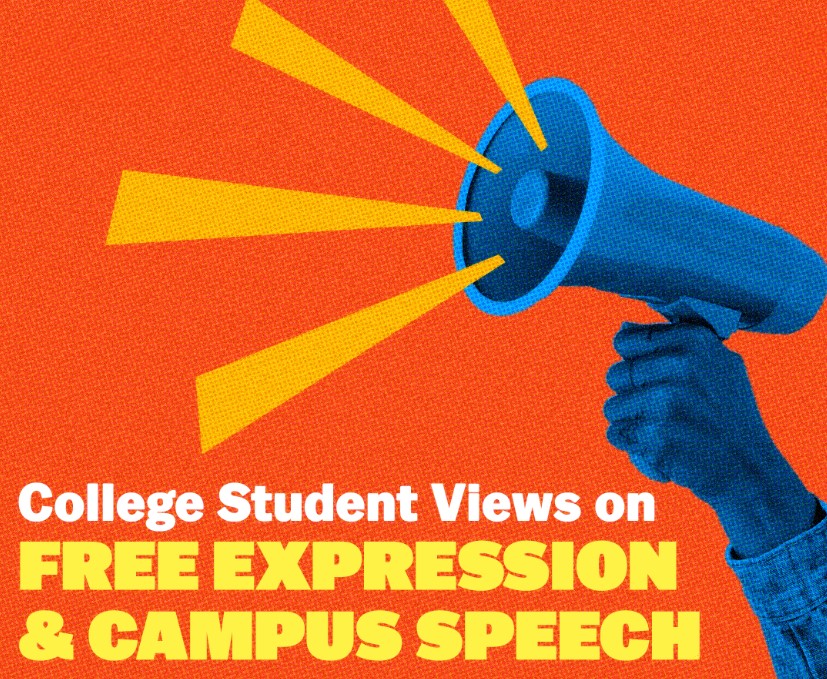America’s college students embrace the concept of freedom of speech, but are concerned about how others use that right, according to a new study from the Knight Foundation and Ipsos.
The study, which is part of the ongoing Knight Free Expression research series, is intended to offer insights to college administrators.
“During this tumultuous time, it’s more important than ever that university leaders are equipped with data that elevates the views of students to guide their campus decision-making,” the report notes.
The challenge, of course. is that the 2024 study offers no bright line in navigating free speech on campus. The findings are valuable, but illustrate the dichotomy that’s so apparent in American society as a whole. Students support free expression as a concept, but most would restrict constitutionally protected hateful speech that targets people on the basis of their race, gender or religious beliefs.
Among the findings:
- College students believe strongly in the value of free speech. About 9 in 10 say that free speech is a very important right.
- They’re feeling insecure about their own free-speech rights. There’s been a significant increase in the percentage of students who feel their right of expression is endangered, with the most significant shift among students identifying as Democrats. That would seem to coincide with pro-Gaza demonstrations and pushback from college administrations and politicians.
- Students say that comments about gender, race, religion and sexual orientation can be harmful and damaging. According to the study, about 70 percent say it can be as damaging as a physical assault.
- Most college students say hate speech should not be legal. Despite a survey question explaining that the U.S. Supreme Court says hate speech is protected by the U.S. Constitution, a majority of students reject that principle. This is at odds with a separate finding that 74 percent of students do not believe that the First Amendment goes too far in the rights it guarantees.
- Few students see social media as a place for civil exchanges. Just 54 percent say they feel comfortable sharing their opinions on social media, and just 23 percent say online conversations are largely civil.
The study also offers insights into views on free speech held by minority races. It comes as no surprise that those most often targeted with hateful and discriminatory speech are most supportive of limits on those attacks.
A copy of the full report is available for download from the Knight Foundation’s site
The Free Speech Center newsletter offers a digest of First Amendment- and news media-related news every other week. Subscribe for free here: https://bit.ly/3kG9uiJ

